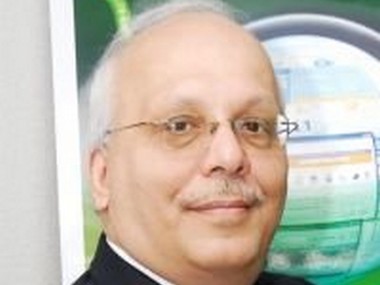Gurus always depart their human body, but their teachings don’t. I knew of Vijay Mukhi as an author of C Odyssey. In the 90s, I had a career in programming in CMC Ltd. I wanted to learn C programing and found that though there were many books available written by foreign authors. They were difficult to understand. But then I bought this book written by Mukhi on the subject. All credit goes to him for making the subject so simplistic. I have asked my daughter, who is pursuing a course in computer science, to read this book too.
Mukhi used to run coaching class for students earlier and his classes were renowned for the courses he taught. His Visual Basic and PowerBuilder front-end tools were famous. Students who were diffident about programming learnt a lot from his courses. He then taught students graphics. He was way ahead of the times.
Recently, he was excited about bitcoins and cryptocurrency. Excited is a mild word. He was charged about it!
What I loved about Mukhi was that he was highly adaptable. In the age of IT and internet, those who are willing to adapt to the swirl that is going around technology are the ones who can survive. Mukhi inspired me and many others. I try to adapt to technology that is forever changing. Mukhi continues to be my inspiration.
The other thing that comes to mind today when we are discussing Mukhi in the past tense is his marriage. It was an internet marriage supported by VSNL. Mukhi and his wife did their pheras on the internet and it was shown live across the world! This may be very symbolic, and it also created an awareness of the power of the internet in India. This ‘Wow’ moment brought many people into its fold, people who were curious and wanted to step into the world of the internet. This event was also symbolic as it showed India’s strength in the use of the medium to the world.
Mukhi opened up the knowledge of the internet to anyone who was keen to understand it and wanted to know about it. Until then, there were flights in airspace, but with Mukhi, people could take flights in cyberspace! He was a bold person who would rubbish COBOL as he believed in the power of C++. He would write programs in C++ as that was his forte.
I learnt how to think in ‘system’ thanks to Mukhi. There are few system thinkers in this world. System thinking is to know how a computer functions and how the operating systems work. If you know that, then you do not have to learn everything available in the market. Once you know the system, you can adapt new learnings easily. Whenever I hear of a new computer program, my system thinking brain gets activated and I find I can easily master it.
As a cyber lawyer, I have shared space with him in many public forums. We both had independent views on the matter given to us as a subject matter. In 2010 we were at the police commissioner’s office in Thane, Mumbai where we had to talk to the force about cybercrime. I felt that since we were talking to the Police force in Maharashtra, I should speak in Marathi. Accordingly, I made a powerpoint presentation in Marathi as the police understand Marathi, the local language. Since I had decided to speak in Marathi, I was a bit apprehensive about how I would speak legal terms in Marathi and was busy poring over my notes at the meeting. Mukhi noticed it and remarked, “Why are you sitting in a corner. You are a lawyer and can do it.” He was very encouraging.
Mukhi was quick to congratulate me on my effort and said that when people spoke in their mother tongue, it simplified complicated things. That was the hallmark of Mukhi—unafraid to praise another for the work they do, if he liked it. That is a rare quality.
There were clear and independent stands that Mukhi took on matters. He wasn’t influenced by anyone. When Prime Minister Narendra Modi announced demonetisation, Mukhi was appreciative of it, but felt that there should have been a demonetisation 2.0 where all the black money stashed in tax havens could not be translated into bitcoins and cryptocurrency. He said, demonetisation was 1.0 as cash-rich people realized that the money stashed away would have zero value and were investing in bitcoins. He was right about that.
Mukhi was very eager to help anyone who sought him out. When the police needed his help with regard to cybercrimes, he helped them out. Many a time he and I would go to the police as he would teach technology and I would help out with legalese. Because of Mukhi, I often got quoted together with him in all leading newspapers and international magazines on matters of cyber litigation.
He was quite temperamental and very straightforward. Either his students liked him or they did not. There were no grey areas, so to speak, about that!
Mukhi criticized modern programmers who have less or no skills because he called their learning ‘cut-copy-paste’. My take to that was: If you are able to do things faster in this rapidly changing age, we better take it [cut-copy-paste] and move on. Capitalists want jobs to be completed in the shortest period. But Mukhi said that this kind of learning would ruin the next generation as they did not have programming skills. He said that once a person had skills, he could adapt to changing technology. Else, he would remain just an operator. I accept that argument.
Artificial Intelligence, which many are trying to grapple with, was made simple by Mukhi. His last two books that will be released soon talk about it. I feel that his book on Artificial Intelligence should be a part of the curriculum in schools.





Leave a reply